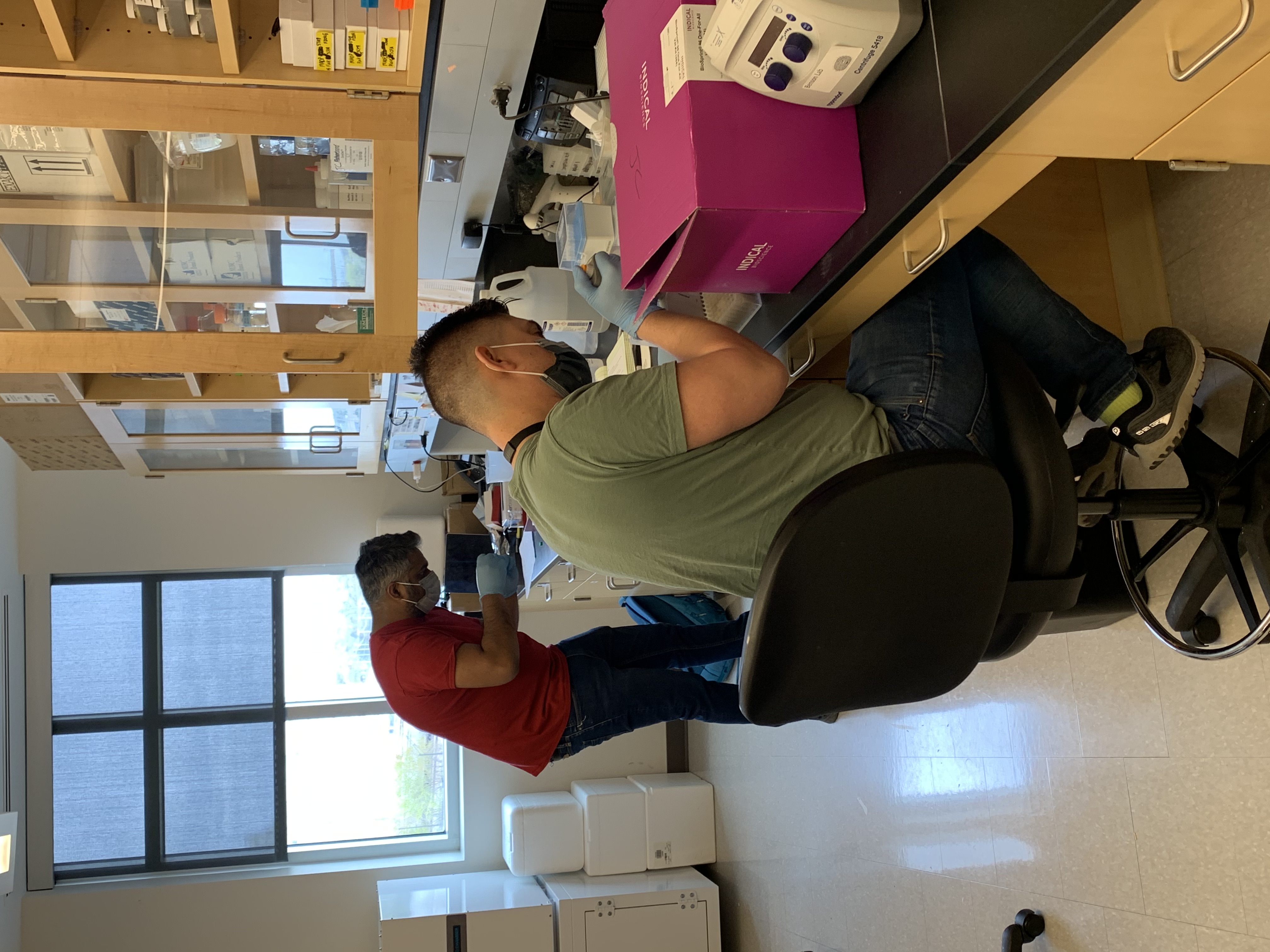New primate gut-brain study shows the behavioral effects of a disrupted gut microbiome

February 6th, 2024
Marmosets with depleted gut microbiomes show poorer recovery from stress and seek more comfort from others
Interrogating the gut microbiome’s role in how the gut and the brain communicate is an active area of science. The vast majority of the experimental findings to date, however, come from mice—which are notoriously dissimilar from humans both physically and behaviorally. A researcher experienced in studying nonhuman primates recently published a study on the microbiota-gut-brain axis using an animal model with greatly increased relevance to humans: captive marmosets (small, omnivorous primates). Dr. Jonathan B. Clayton, a veterinarian and primate specialist researcher affiliated with the Nebraska Food for Health Center, led a study that tracked the physical and behavioral changes that occurred when the animals’ gut microbiomes underwent a major shift.
Dr. Clayton notes that marmosets have a long history in neuroscience research because various social behaviors in the animals are analogous to humans: for example, they are communicative, socially co-operative, and they form bonded pairs that share responsibility for raising the young. He says, “Of all the nonhuman primates, marmosets are uniquely suited for providing insights about human neuropsychiatric conditions. Their normal social behavior in captivity is well studied, so changes in this behavior can be meaningful.”
In the study, the researchers caused a sudden disruption to the marmosets’ gut microbiomes by feeding them antibiotic-laced marshmallows. Certain behaviors changed with gut microbiome disturbance: the primates showed more interaction and tended to stay close to their cage partners, indicating they were seeking comfort from others.
Cortisol, an indicator of stress response, was no different under calm circumstances when the marmoset gut microbiomes were depleted, but adding stressors caused higher levels of cortisol in the animals—possibly showing their reduced ability to recover from stressful situations.
The antibiotic intervention also caused a rapid shift in the concentrations of important metabolites (molecules produced by microbes) in their guts—bile acids and short-chain fatty acids were dramatically altered, indicating an overall change in metabolism. Furthermore, the researchers saw changes in their intestinal levels of key neurotransmitters relevant to the gut-brain axis, such as GABA, serotonin and glutamate, which may account for why some of the behavioral changes occurred.
The study, carried out by a multidisciplinary team that included expertise in primatology, veterinary medicine, neuroscience, microbiology, microbial ecology, and metabolomics, is the first to show that high doses of antibiotics clearly alter the gut microbiome and metabolites as well as social behavior and gut-brain communication in a nonhuman primate model. The ultimate goal, according to the researchers, is to gain insights into what happens in human neuropsychiatric conditions such as anxiety and depression.
Dr. Andrew Benson, Director of the Nebraska Food for Health Center, says this marmoset study provides more evidence for the cause-effect relationship between the gut microbiome and behavior. He says, “Over the years many rodent studies have demonstrated that changing the gut microbiome can cause brain changes in the animals, but this work in marmosets shows the nuances of how the gut microbiome can affect behavior in a highly social species.”
Dr. Clayton adds that, given the high relevance of this animal model to humans, the specific bacteria that changed in the gut after antibiotic administration (specifically, species of Fusobacterium), are worth investigating for their potential to inform human therapeutic approaches.
“Multiple factors contribute to the emergence of anxiety and depression in humans,” he says. “Although the gut has been established as a contributing factor, researchers have been struggling to show cause-and-effect. More study of nonhuman primate models is an excellent way to move the field forward and learn about the extent of the complex behavioral changes that can be triggered by the gut microbiome.”
Dr. Jonathan Clayton is affiliated with the University of Nebraska at Omaha, the University of Nebraska–Lincoln, and the Nebraska Food for Health Center.
Read the full paper in the link below.
